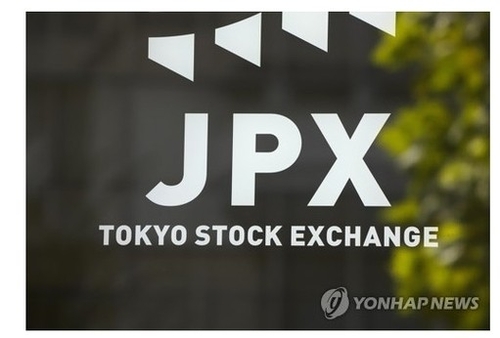(Seoul=Yonhap Infomax) Kyung Pyo Hong – On the 20th, major Asian stock indices closed mixed following Nvidia Corp.'s stronger-than-expected earnings release.
Japanese and Taiwanese equities advanced, while Chinese markets ended lower.
Japan
Major Japanese indices surged on Nvidia’s record-breaking results, which exceeded market forecasts.
According to the Yonhap Infomax World Stock Index (6511), the Nikkei 225 jumped 1,286.24 points (2.65%) to close at 49,823.94, while the TOPIX rose 53.99 points (1.66%) to 3,299.57.
Despite persistent weakness in technology shares earlier this week amid concerns of an artificial intelligence (AI) bubble, investor sentiment rebounded sharply after Nvidia’s all-time high earnings.
Nvidia, after the New York market close, reported record revenue for the third quarter of fiscal 2026 (August–October), effectively dispelling doubts over the AI sector’s momentum.
Third-quarter revenue soared 62% year-on-year to a record $57.01 billion (approx. 83.4 trillion won), beating consensus estimates of $54.92 billion.
Nvidia projected continued growth in the fourth quarter (November–January), forecasting revenue of $65 billion.
In after-hours trading, Nvidia shares surged over 5%, with other US tech names such as CoreWeave (NASDAQ: CRWV), AMD (NASDAQ: AMD), and Micron Technology (NASDAQ: MU) also posting significant gains.
This led to sharp rallies in Japanese AI and semiconductor stocks, driving the broader market higher.
SoftBank Group Corp., a major AI-related stock, climbed over 6% intraday, while memory chipmaker Kioxia Holdings Corp. at one point gained more than 11%.
Semiconductor testing firm Advantest Corp. and optical cable specialist Fujikura Ltd. also advanced.
Japanese government bond yields continued to rise on concerns that Prime Minister Sanae Takaichi’s large-scale supplementary budget would strain fiscal health.
Reports suggest the government’s economic stimulus package will exceed 21 trillion yen, surpassing the previously expected 17 trillion yen.
The Takaichi Cabinet, which has emphasized aggressive fiscal policy, is set to announce the scale of its economic measures at a cabinet meeting on the 21st.
Junko Koeda, Policy Board Member at the Bank of Japan (BOJ), stated at a financial and economic meeting in Niigata Prefecture that “normalizing interest rates to restore real rates to a balanced state is necessary to avoid unintended distortions in the future.”
The 10-year Japanese government bond yield rose more than 3.5 basis points intraday to break above 1.80%, the highest since June 2008, marking a 17.5-year high.
The 30-year yield also surpassed 3.4%, setting a new record high.
As fiscal concerns pushed the dollar-yen rate higher, Japanese authorities intervened verbally in the foreign exchange market.
Chief Cabinet Secretary Minoru Kihara described recent forex moves as “unilateral and rapid,” expressing concern and stating that authorities would closely monitor the market as the yen weakens against the dollar.
The dollar-yen exchange rate traded at 157.611 yen, up 0.41% from the previous session.

China
Chinese indices fell despite Nvidia’s strong earnings, as semiconductor and technology stocks weakened.
According to the Yonhap Infomax World Stock Index (screen no. 6511), the Shanghai Composite Index closed down 15.69 points (0.40%) at 3,931.05, while the Shenzhen Composite Index dropped 18.90 points (0.76%) to 2,454.44.
Risk aversion persisted this week amid concerns over high valuations in Chinese tech stocks.
AI-related shares initially rose on Nvidia’s results but later gave up gains.
Chinese tech stocks faced selling pressure due to weaker-than-expected earnings and profit-taking after recent rallies. The Shanghai Composite has gained about 18% year-to-date.
Ongoing US-China tech tensions also weighed on the sector.
Nvidia CEO Jensen Huang said during the earnings call that chip sales prospects in China remain “zero,” but the company is working to persuade US and Chinese authorities to allow re-entry into the market.
Analysts noted that the recent dollar strength is pressuring tech stock valuations and triggering capital outflows from emerging markets.
Rising geopolitical tensions between China and Japan are also cited as a drag on equities.
On November 7, Prime Minister Sanae Takaichi stated in the lower house that Japan could exercise collective self-defense in the event of a “Taiwan contingency,” marking the first such statement by a sitting prime minister. China’s foreign ministry responded with strong criticism, and on November 15, the Chinese embassy in Japan posted a warning on its official WeChat account, advising caution for those planning to visit Japan soon.
China has expanded pressure on Japan, including travel and study advisories, postponement of Japanese film screenings, and a notice to suspend imports of Japanese seafood as a potential additional sanction.
Conversely, news that China is considering new property stimulus measures, such as mortgage subsidies, lifted real estate-related stocks, as well as securities and financial shares.
The People’s Bank of China (PBOC) kept its Loan Prime Rate (LPR), the de facto benchmark rate, unchanged for the sixth consecutive month, in line with market expectations. The 1-year LPR was held at 3.0% and the 5-year LPR, used as the mortgage benchmark, at 3.5%.
The PBOC also set the yuan weaker. The dollar-yuan central parity rate was fixed at 7.0905, up 0.0033 yuan (0.05%) from the previous session.
Hong Kong
Hong Kong stocks ended mixed. The Hang Seng Index edged up 4.92 points (0.02%) to 25,835.57, while the Hang Seng China Enterprises Index slipped 7.70 points (0.08%) to 9,143.34.
Taiwan
Taiwanese equities advanced, with the Taiex Index rising 846.24 points (3.18%) to close at 27,426.36.
(End)
Copyright © Yonhap Infomax Unauthorized reproduction and redistribution prohibited.

